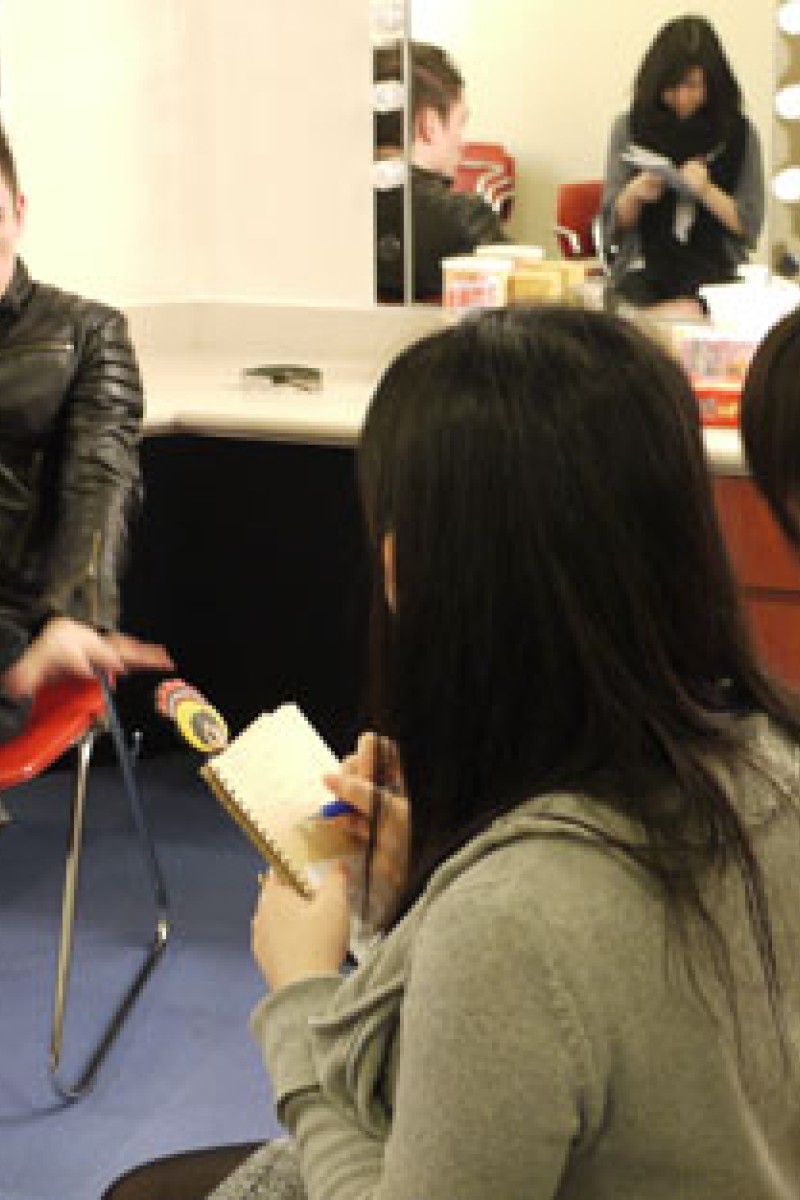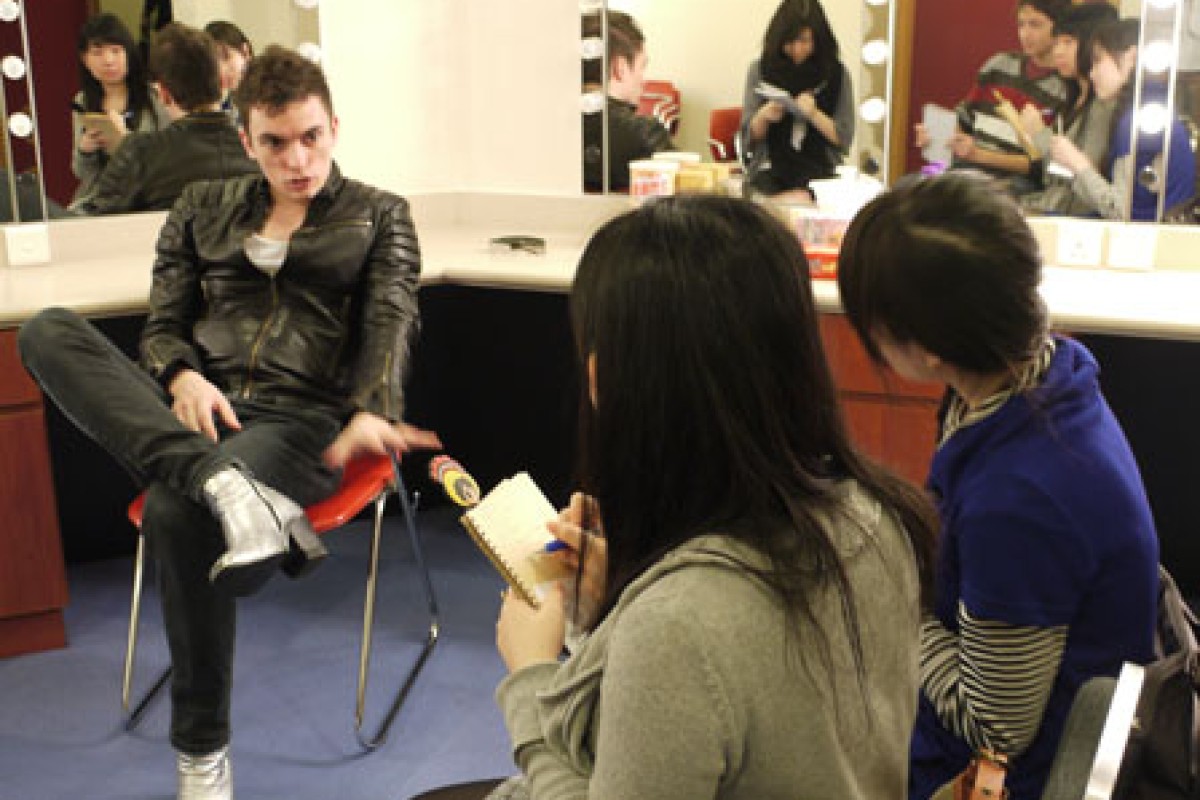
US musician Cameron Carpenter offers a few tips as he discusses creativity and what school didn't teach him
 Cameron Carpenter talks to YP junior reporters about his work and inspirations.
Cameron Carpenter talks to YP junior reporters about his work and inspirations.Jennifer Tsai: Why do you choose to live in Germany instead of the United States?
Cameron Carpenter: I went to Germany to play a couple of years ago, and when I visited Berlin, I fell in love with the place right away.
Nick Hu: What advice would you give to a budding organist?
CC: I am a huge believer in instrument ownership. I've owned 14 or 15 digital organs in the past 15 years. All the important work that I've been able to do, my relationship with the instrument, and the inspiration made me want to play the digital organ and create a touring organ, which I'm now doing.
It all comes from having a relationship with one's instrument, however humble. Nothing kills creativity like having to get into the car and drive 25 minutes to practice, that's just not sustainable. It's really important to have instruments in the house, even if it's a very humble organ. Anyone who wants to play the organ should first get one, even if it's not a good one.
Iris Cheung: What kind of music do you want to make?
CC: Commerce and art. They are conflicting in some ways. But there is a good marriage here. Being commercially successful would help develop one's artistic potential.
I would also like to expand organ music to include films, video games and anime. I will continue to write for the instrument. That is why I develop the digital organs. They can do anything and I can play them anywhere! That would be lots more fun for the audience and me.
Rachel Cheng: How was your life at the Juilliard school ?
CC: Boring. It was a disappointment. Part of the reason you go to Juilliard is to be able to say you went to Juilliard. But the fact is, Juilliard is not a very creative place. But it was a great way to get into New York. There were wonderful teachers.
Jennifer: What is it like to live a day in your shoes?
CC: It may not be interesting, because it's a lot of the same, and it's a lot of hard work. My life is kind of complicated in the sense that it's a little bit like a factory. The end result is this product that I'm trying to make, which of course, is basically me.
A typical day includes five things: piano practice, organ practice and then there's the business side of things. There's a lot of responding to e-mails ... so I have to work with my managers. And then there's eating and the gym. Eating is always a challenge. It's very hard for me to take time to eat.
Nick: How would you describe your musical style?
CC: I have one principal comfort zone, which I would describe as "ecstatic". This may seem a little self-flattering, but I mean that in the intellectual sense. Art in its most artistic, or moving, or engaging, sense seems to have something more than just paint on canvas or notes on keys. It's something you might call "ecstatic". It's certainly this sense of ecstasy, uplift and excitement that I most like to channel. When I'm playing at my best, that's what's coming out.
Iris: Is there anything interesting about your school life?
CC: The most interesting thing in school life was discovering how to be totally independent of it. I assume that is the same for everyone in their early life, especially in school. They already have an idea on what they want to do. If one wants to be a lawyer, doctor or dentist, they will study those subjects. But if you want to be writer or artist, or something that is not well-defined, you have to do it yourself.
Some schools will try to kick you out once they've got your money. In fact, Juilliard tried to kick me out, but of course they didn't succeed.
Rachel: Do you see yourself collaborating with other artists?
CC: Of course, I am totally interested in collaboration. I have the feeling if I'm able to launch an official touring organ, then the collaboration may be with dancers. It's a natural combination.
Compiled by Olivia Chavassieu